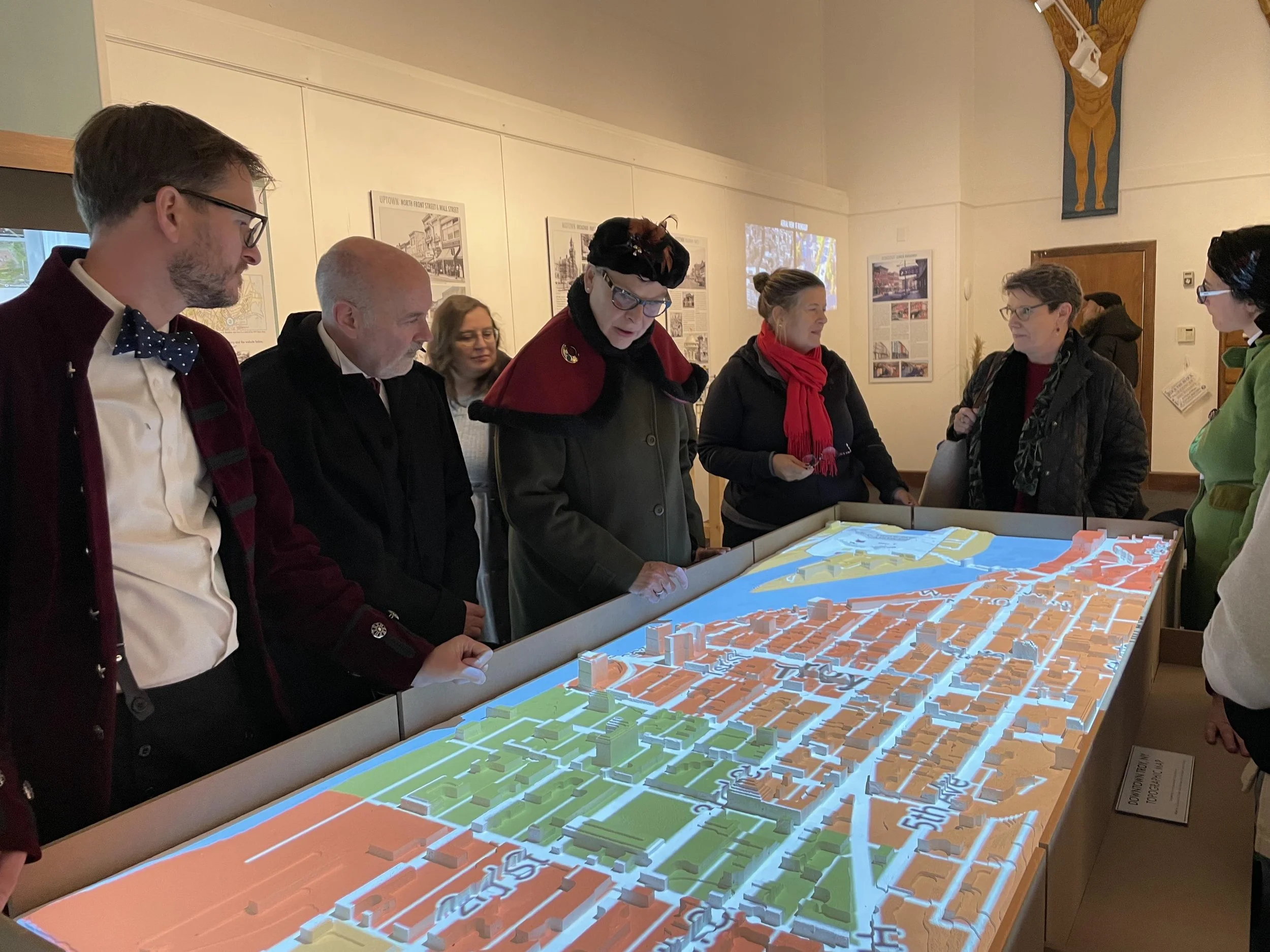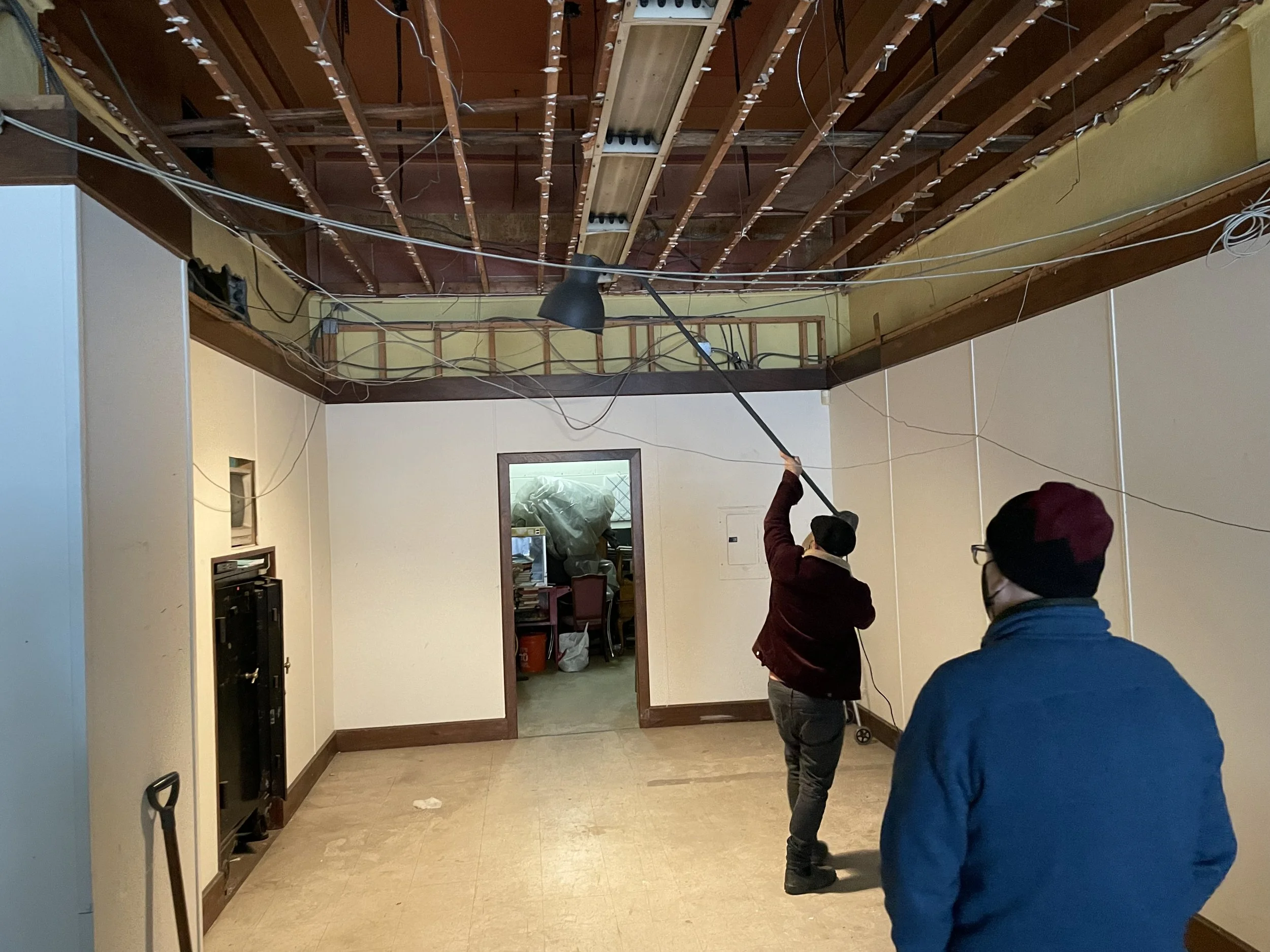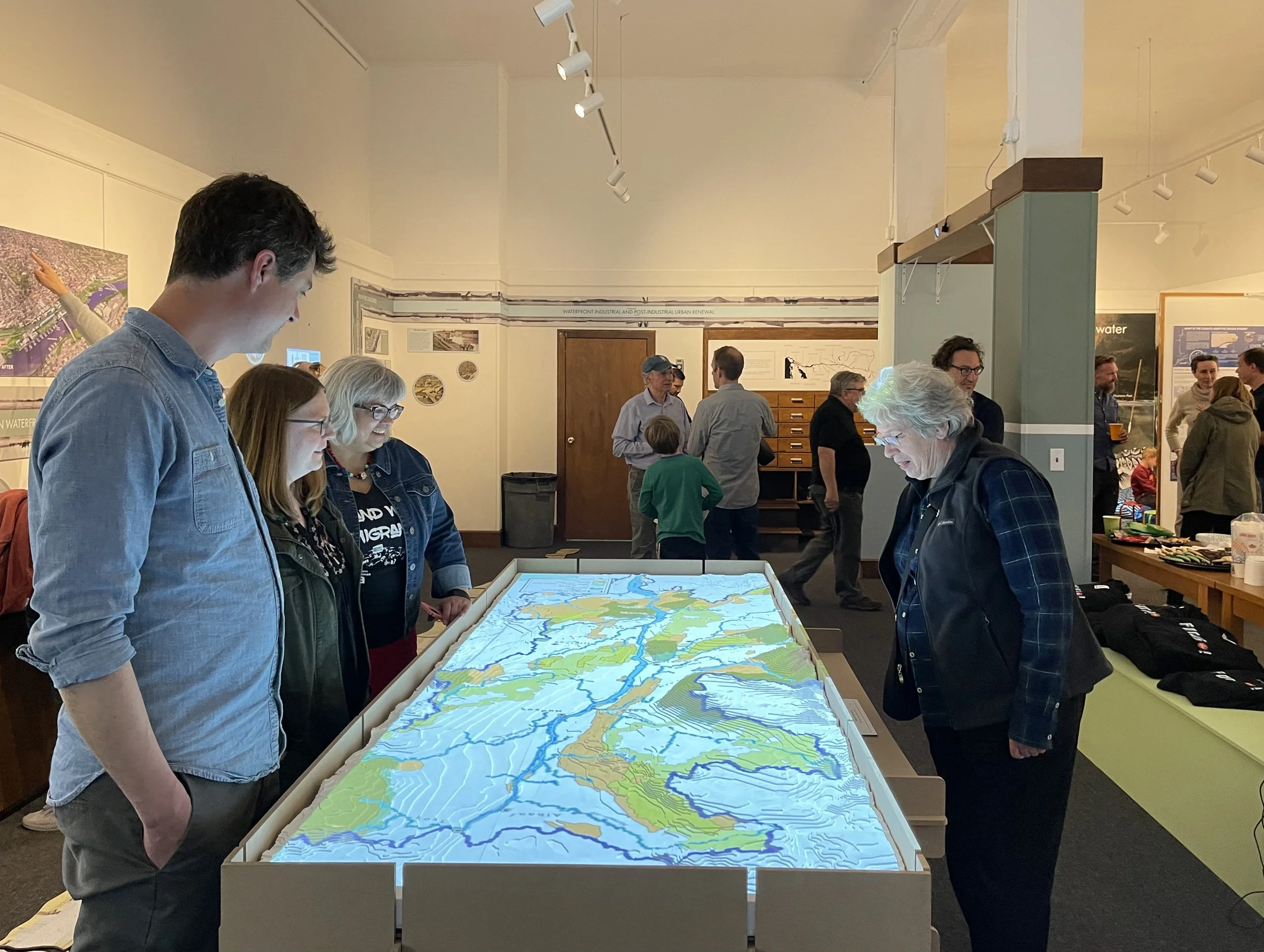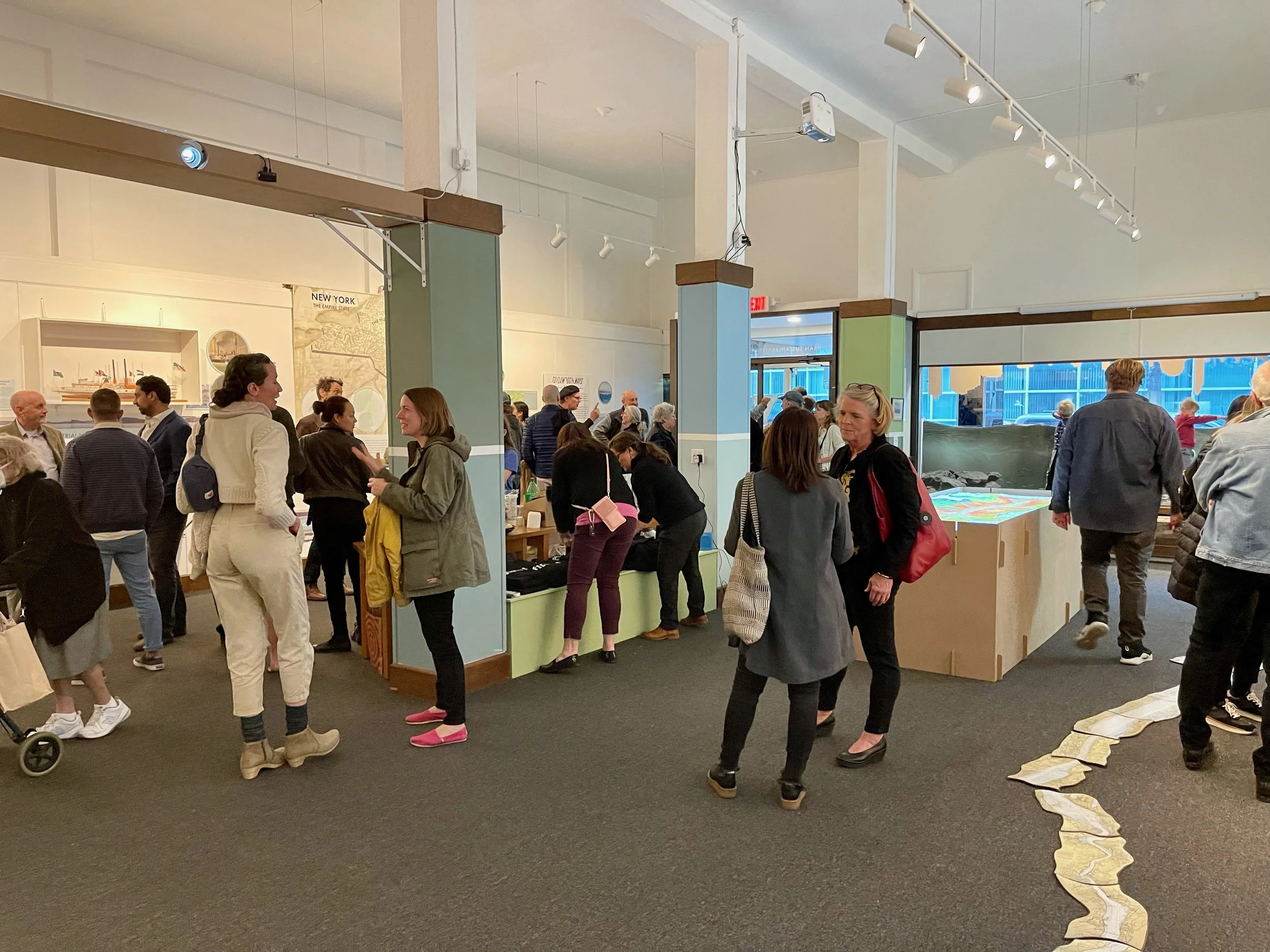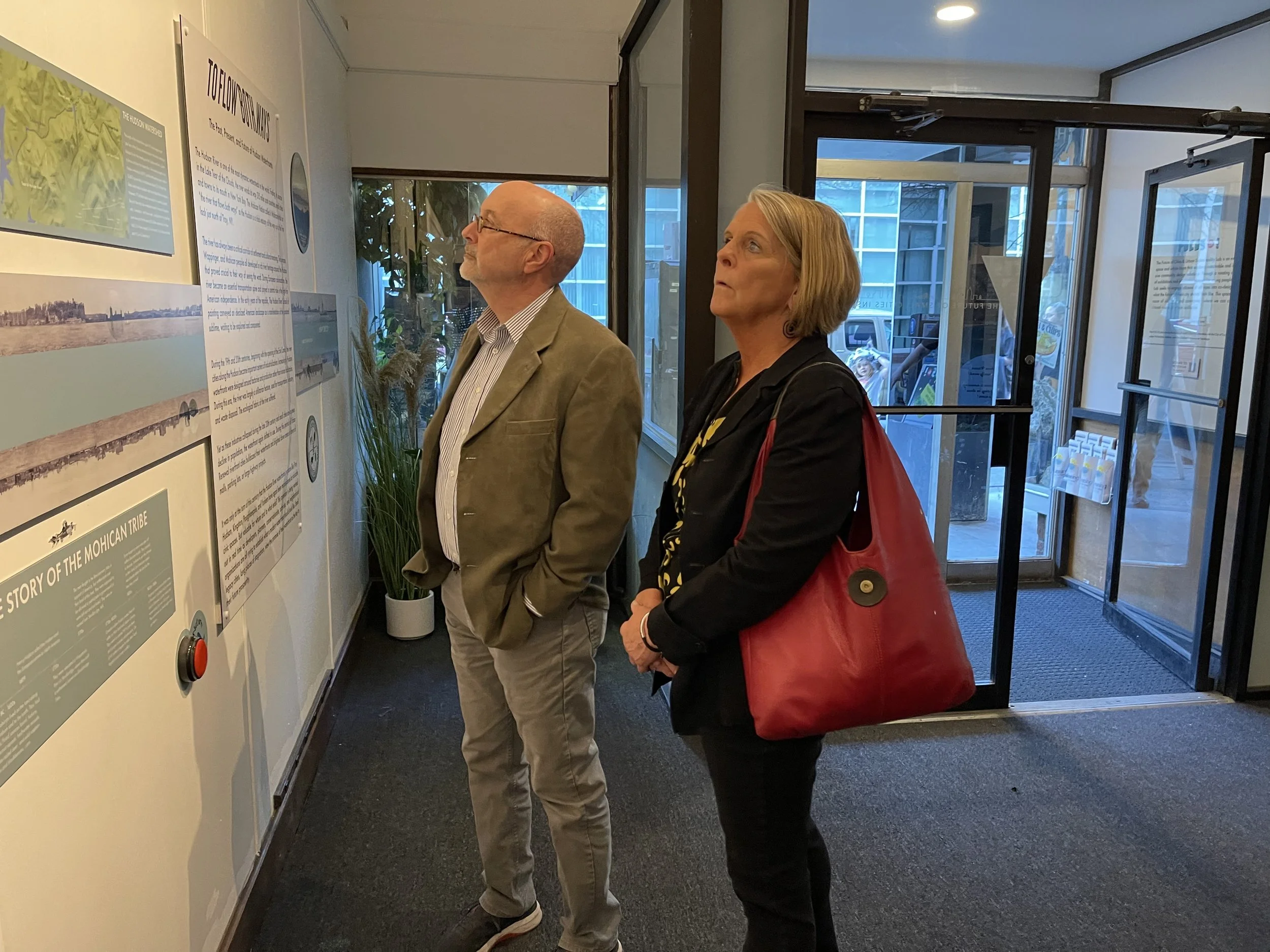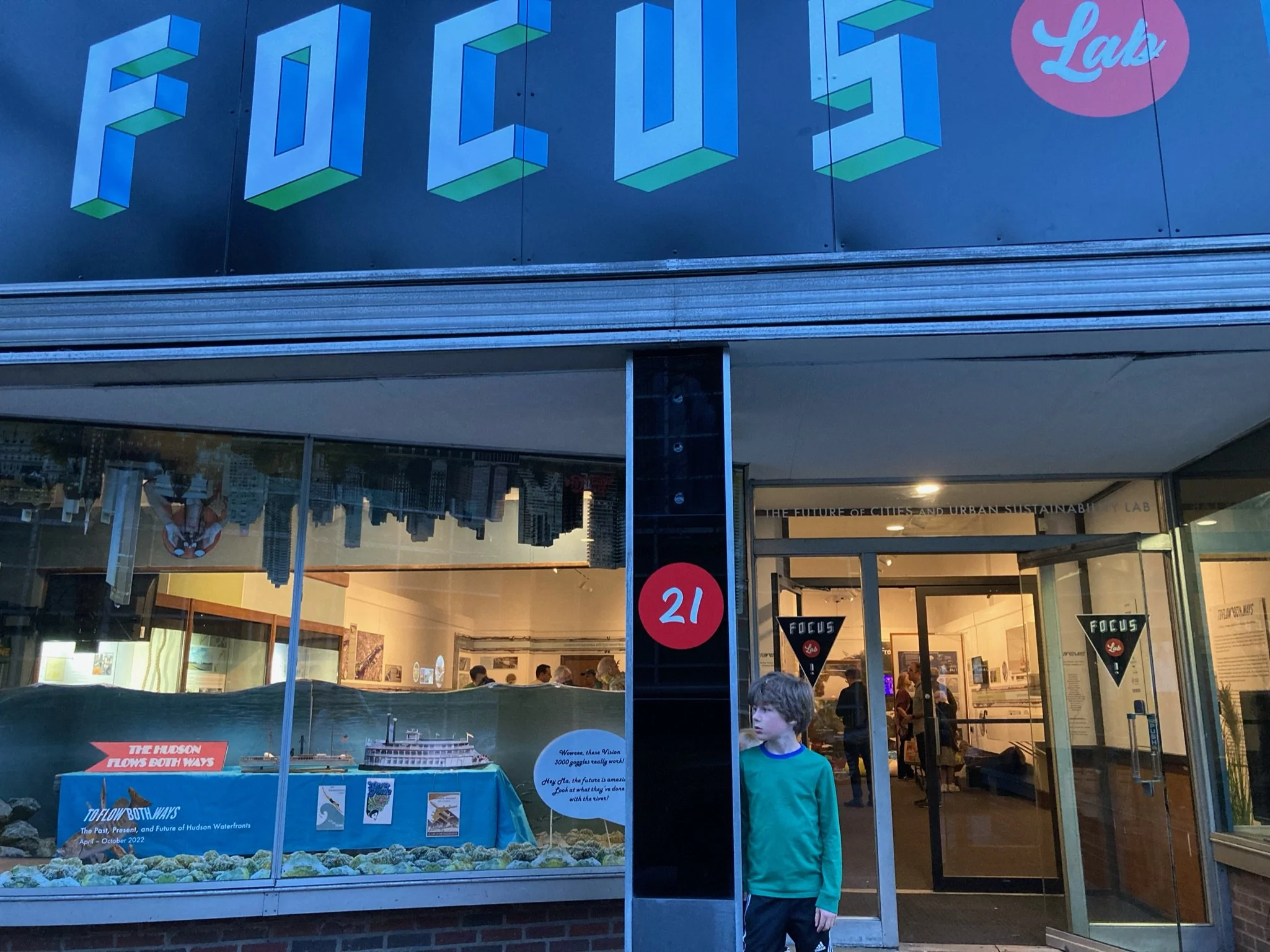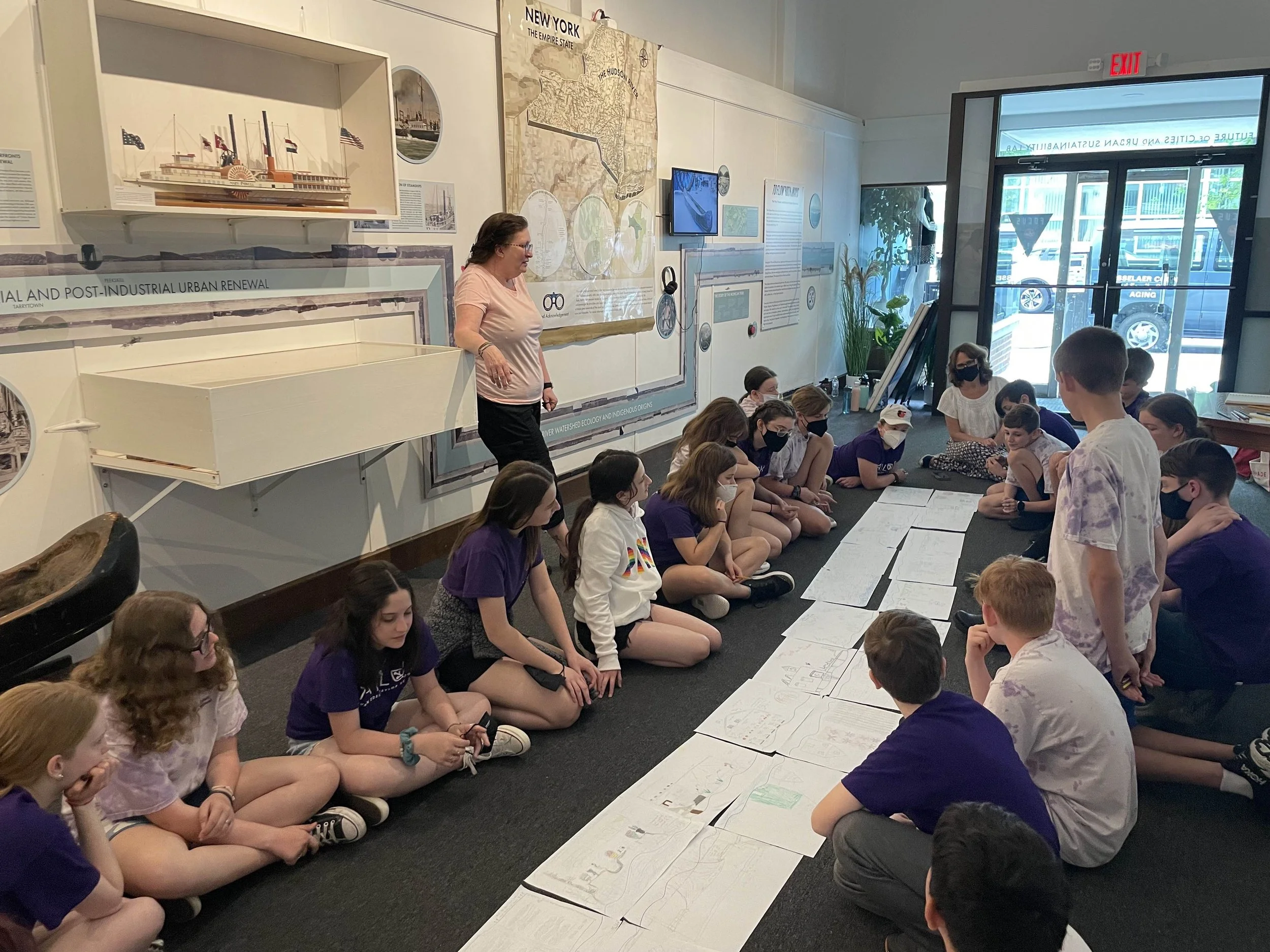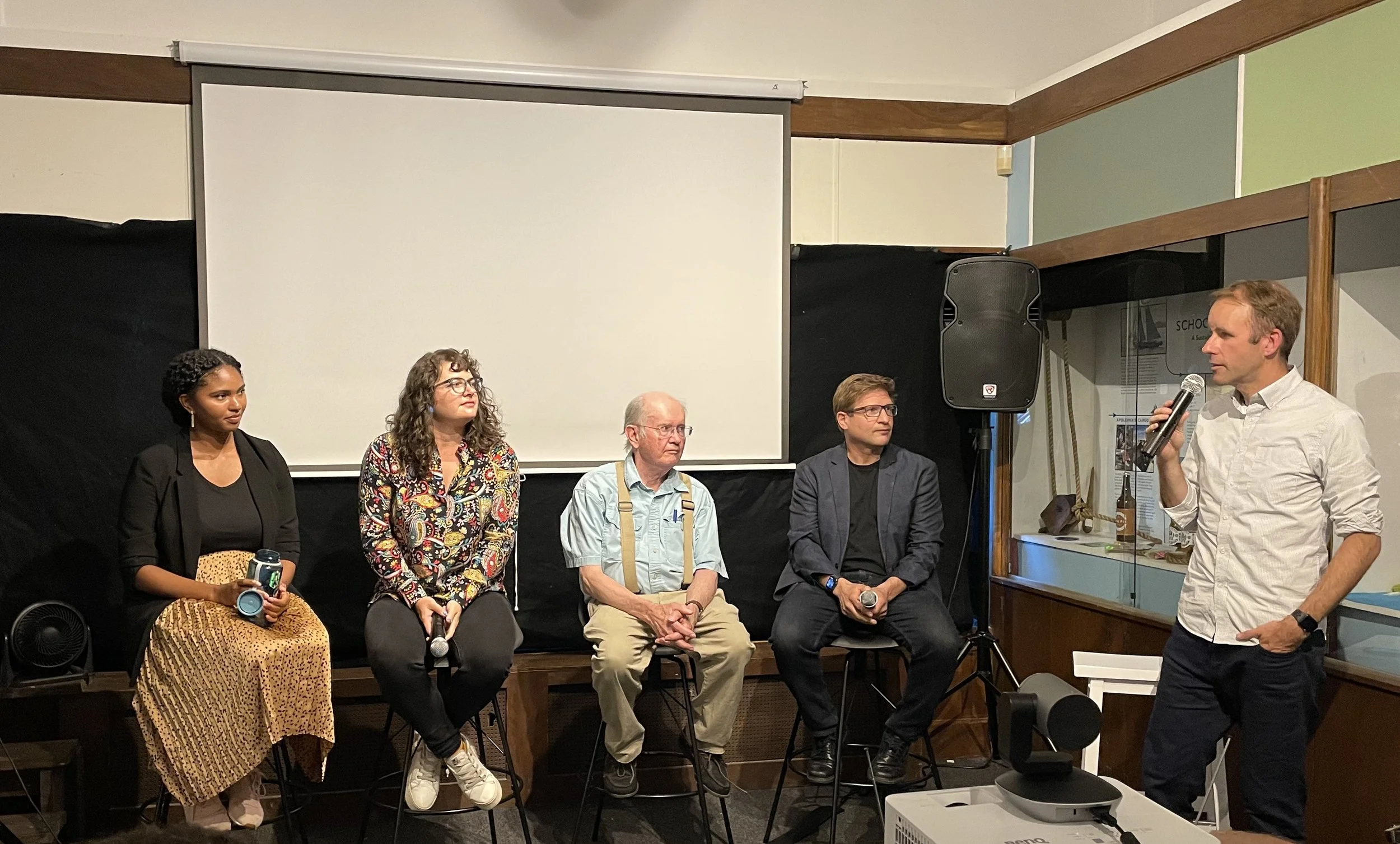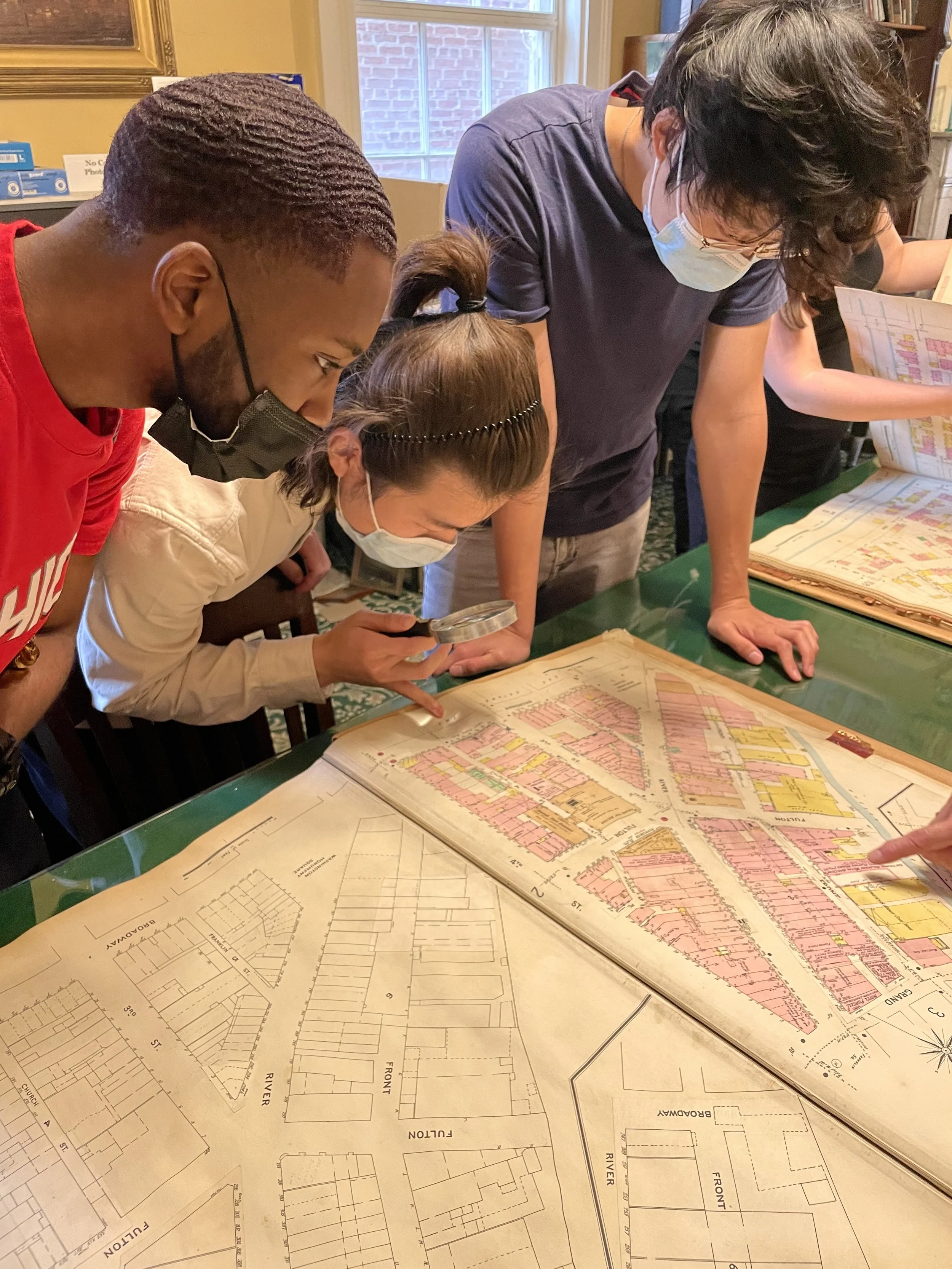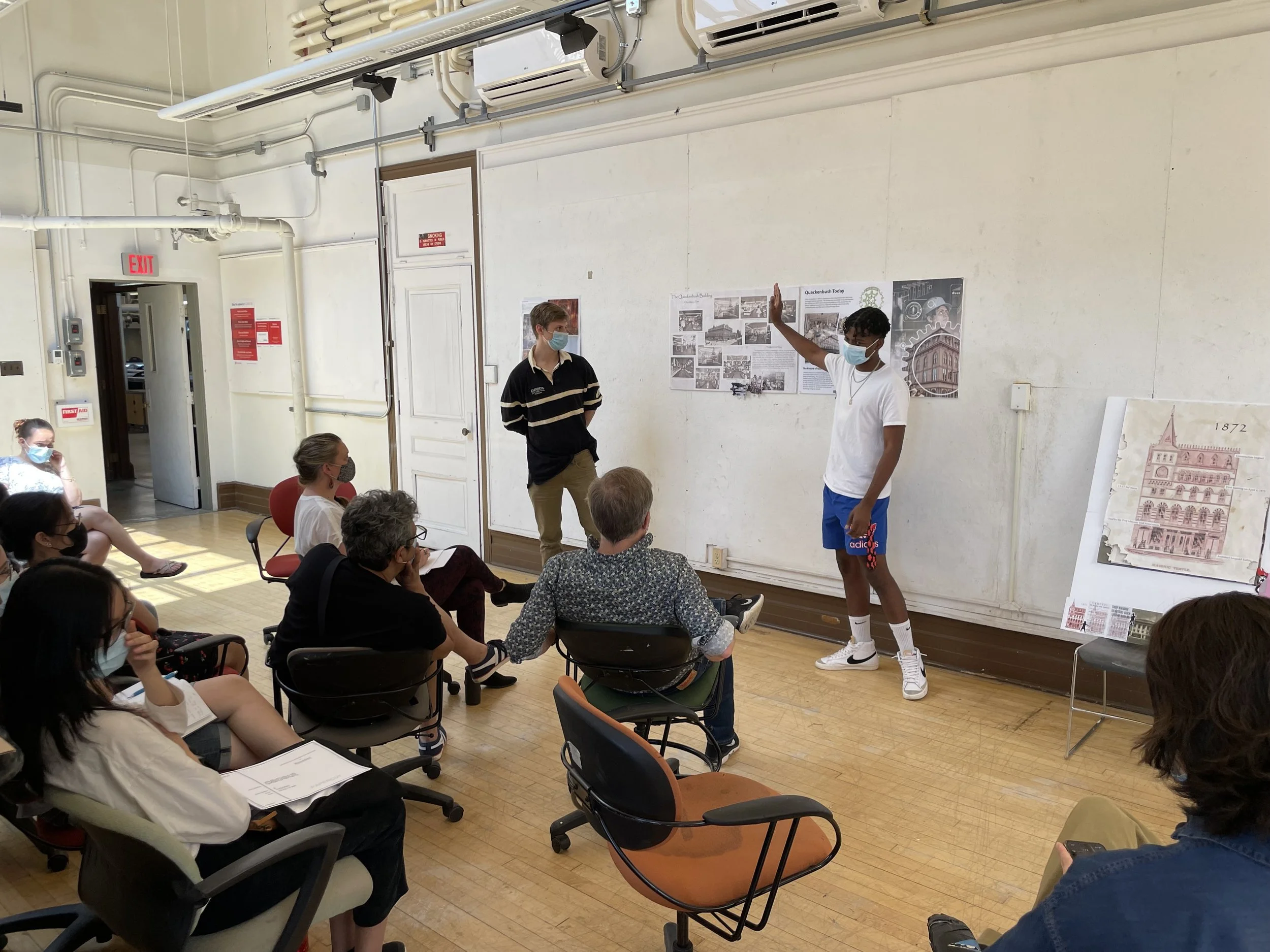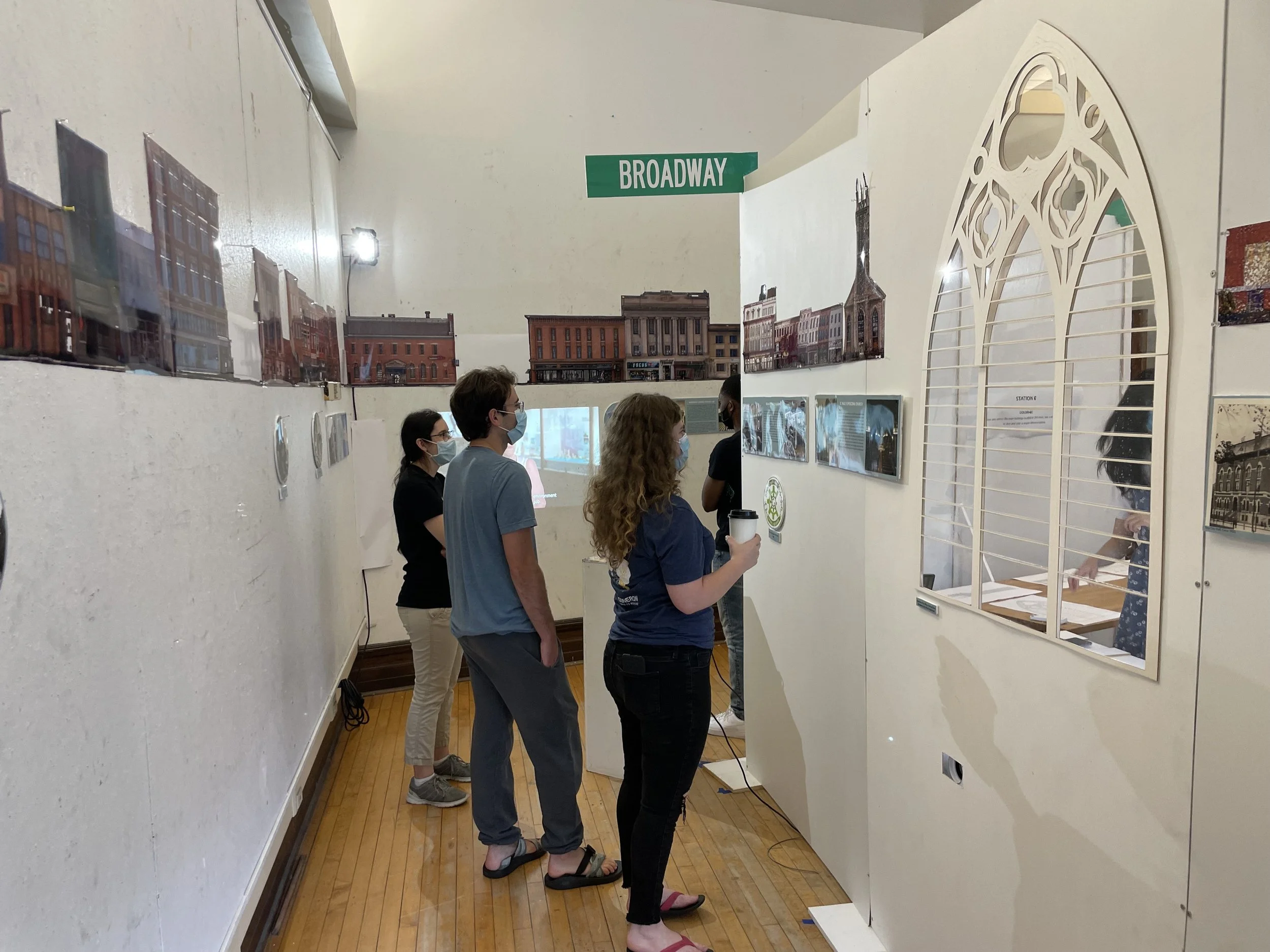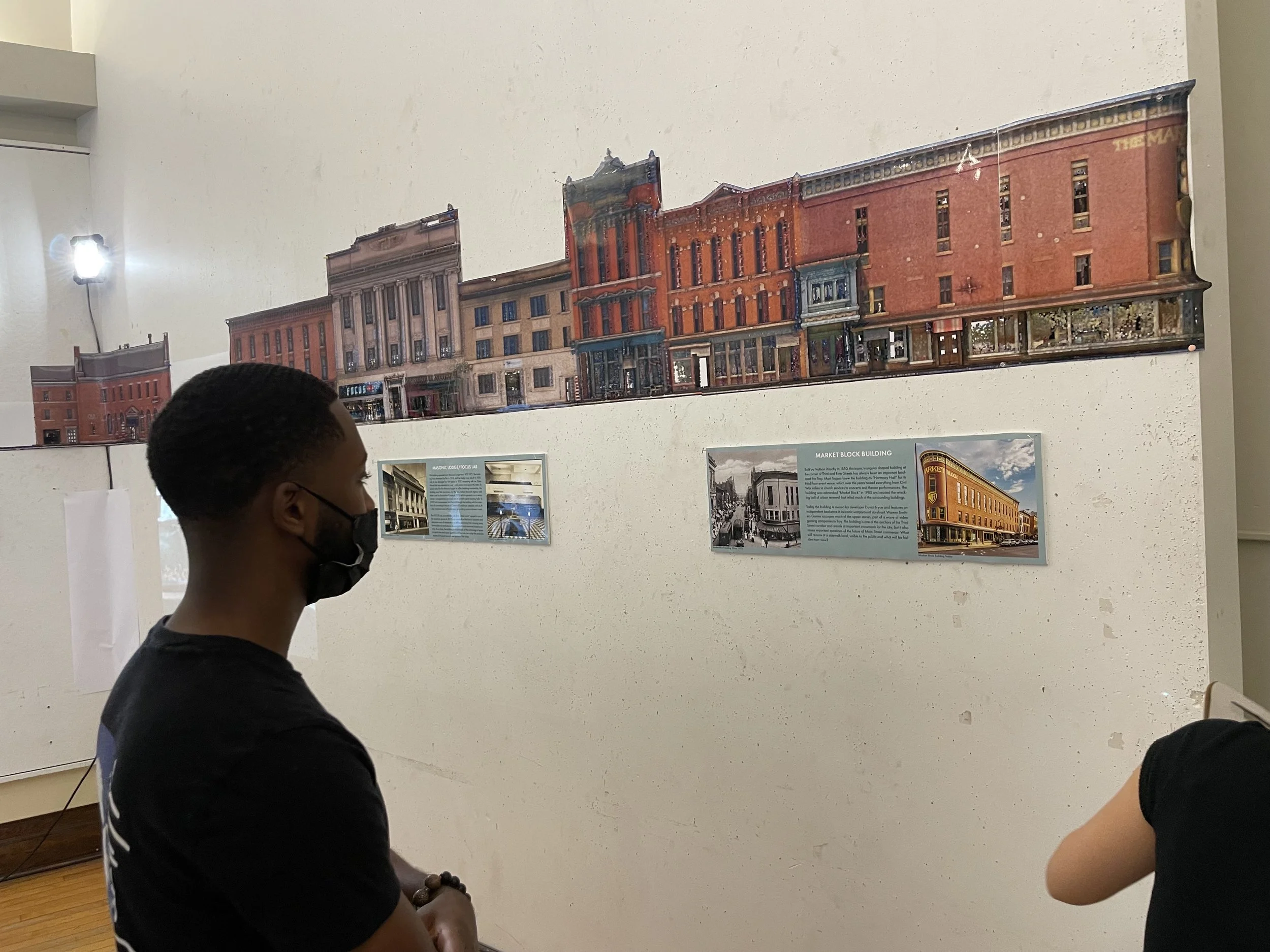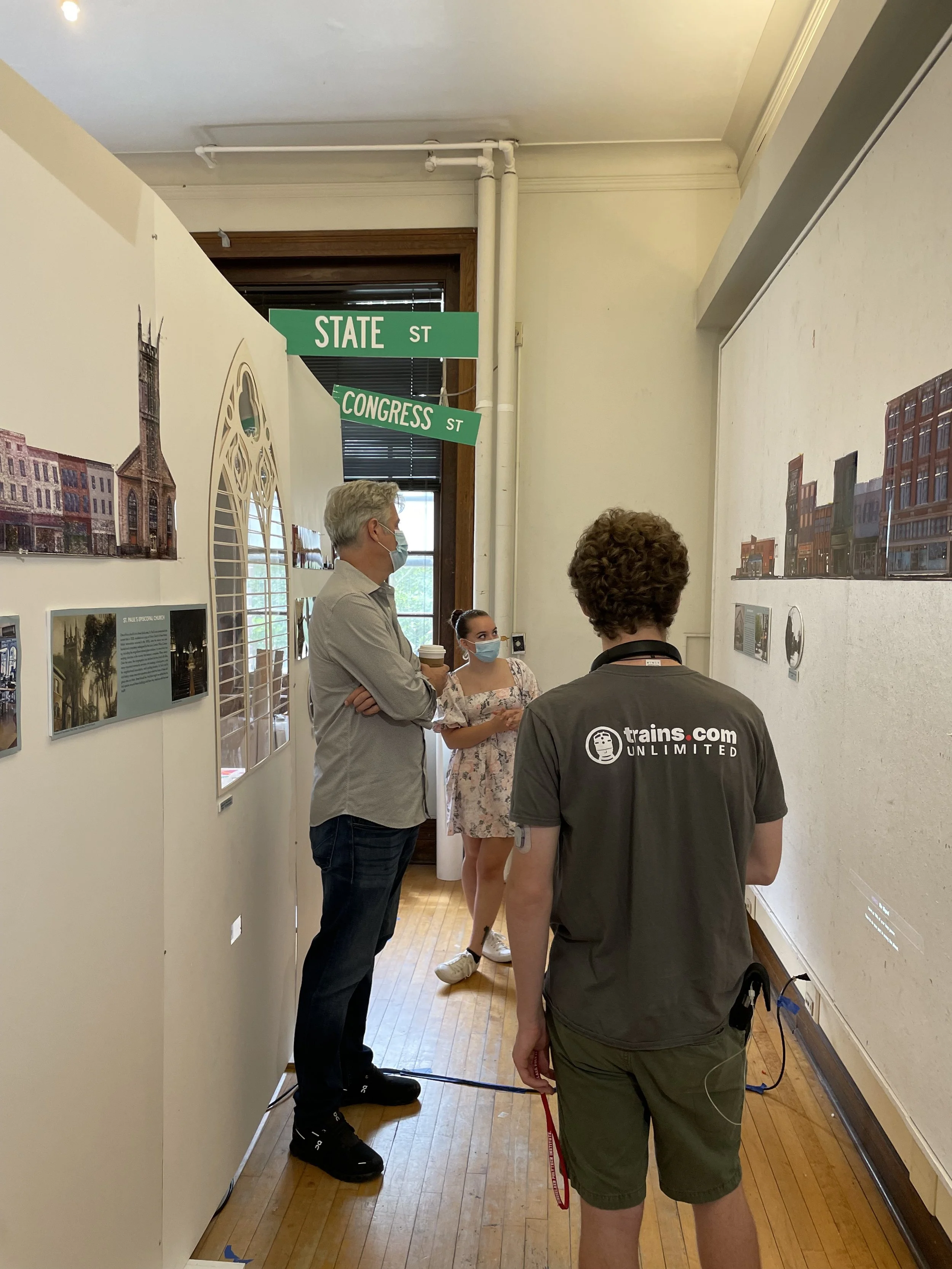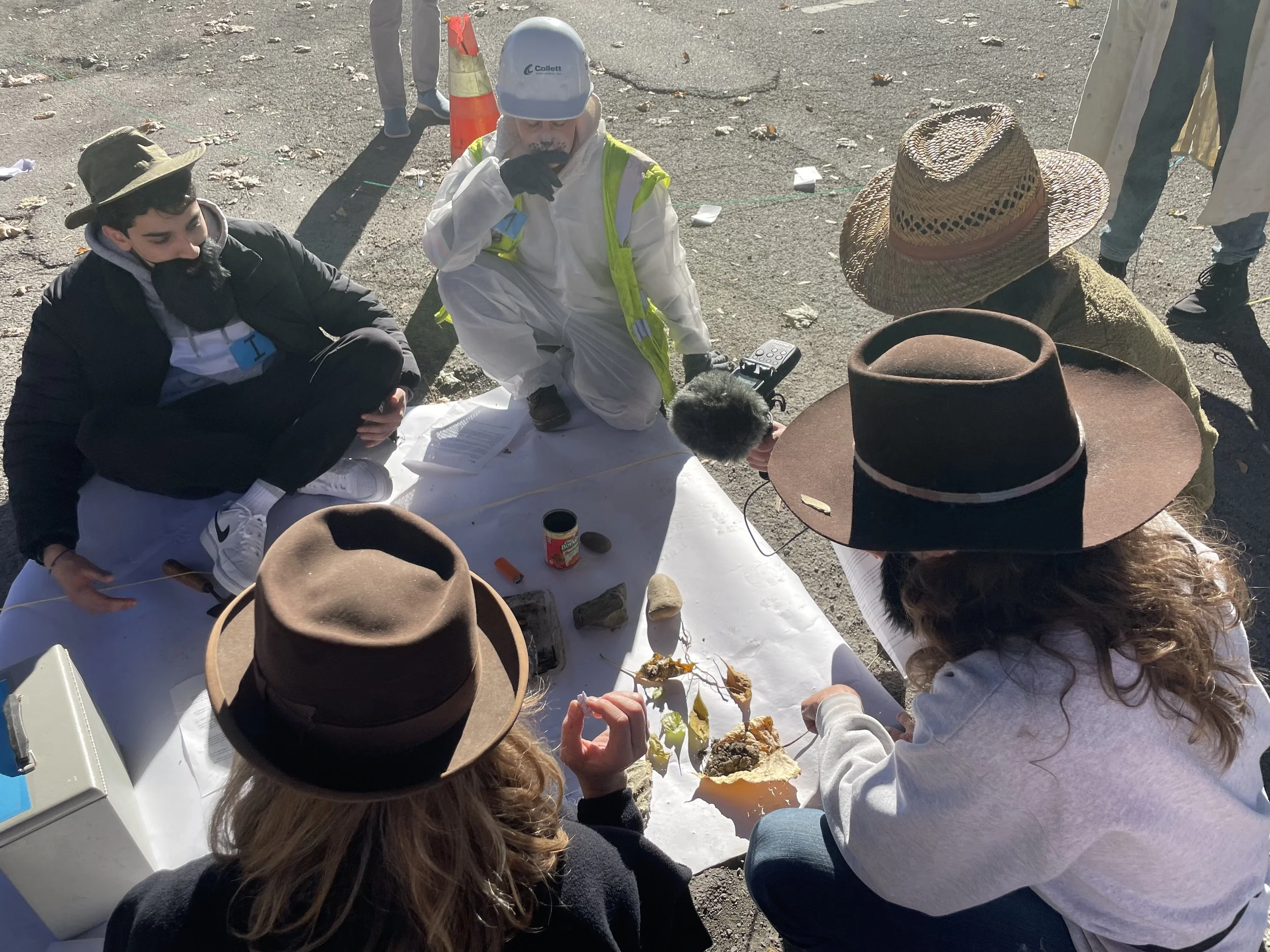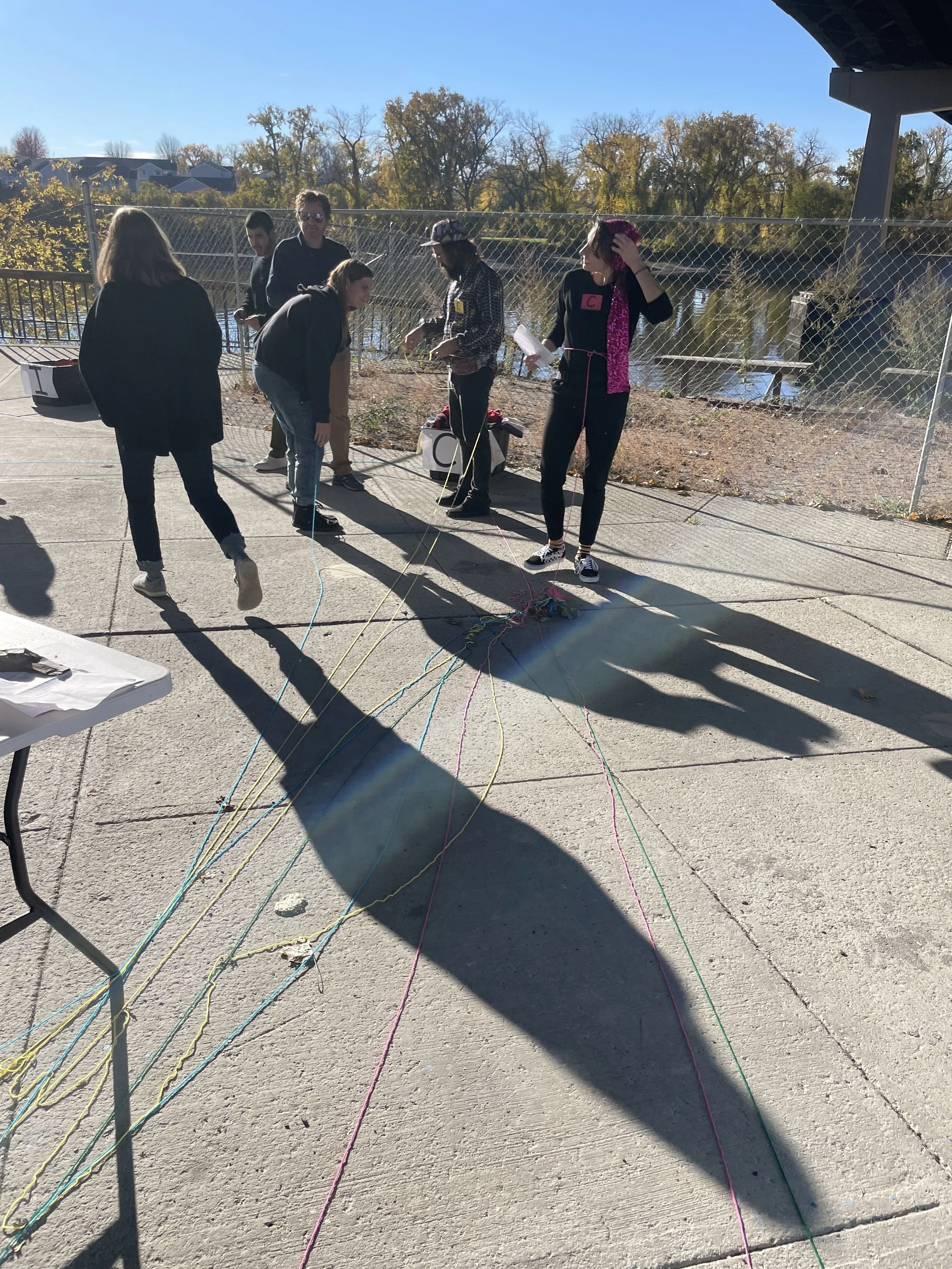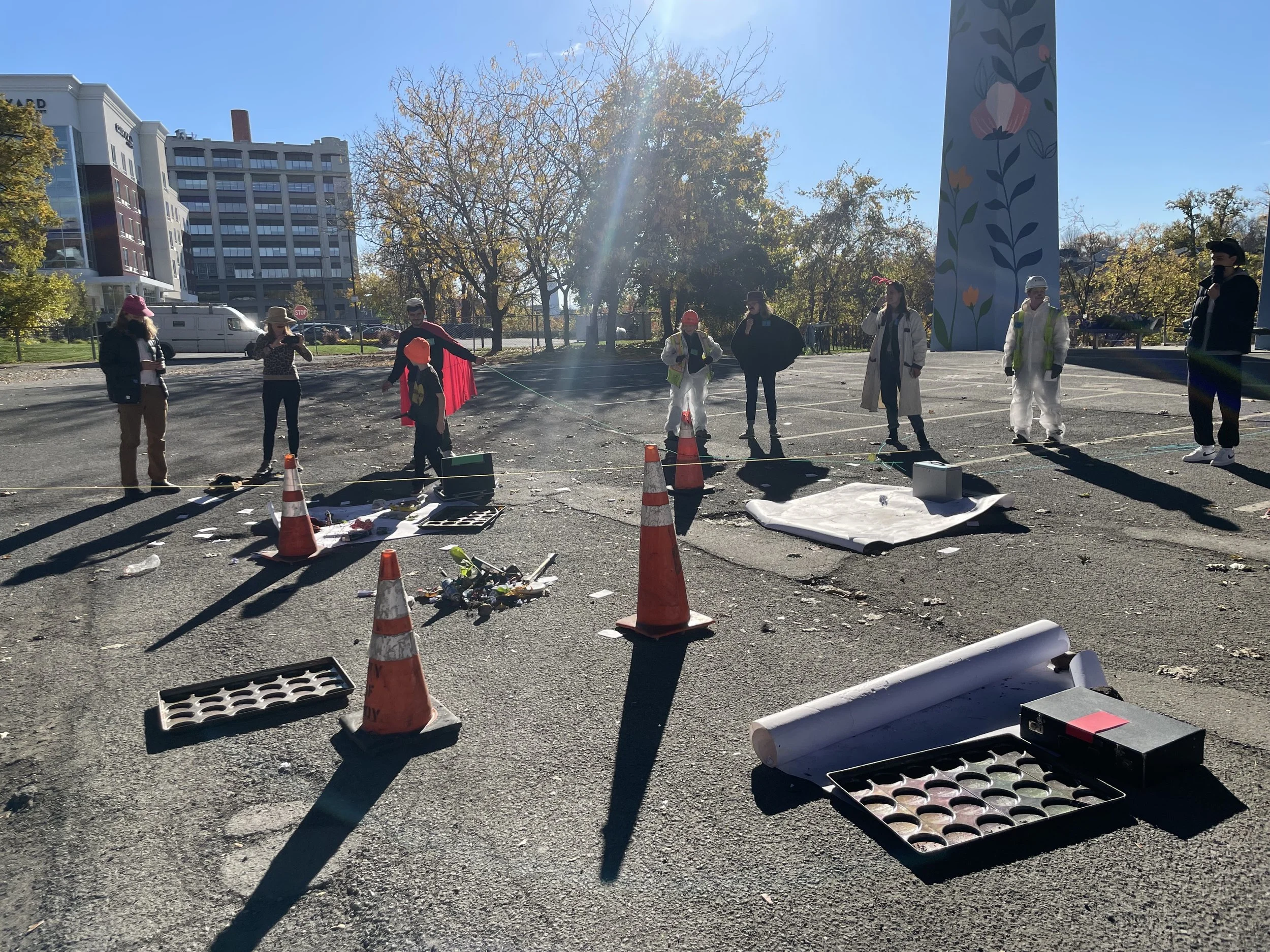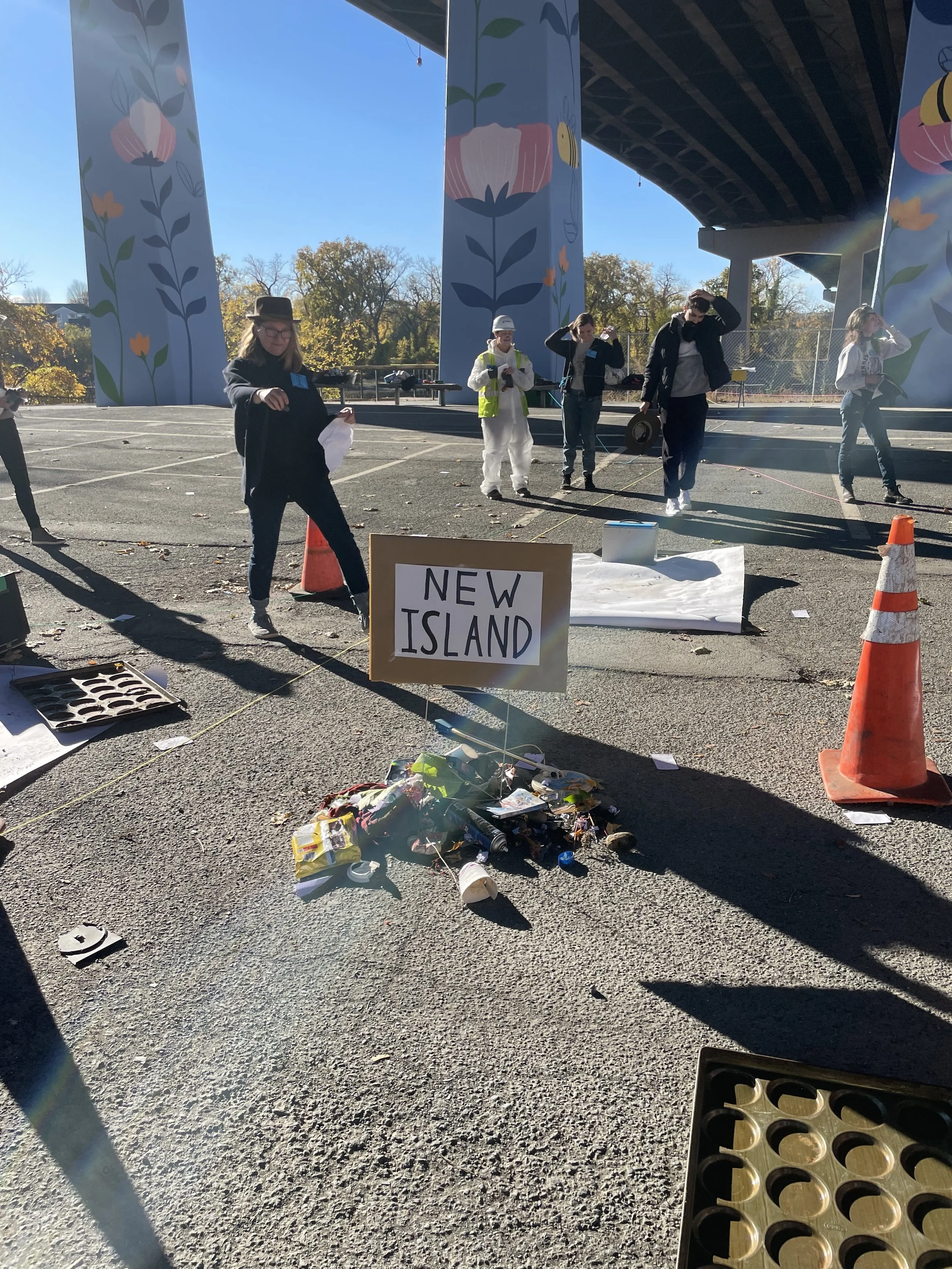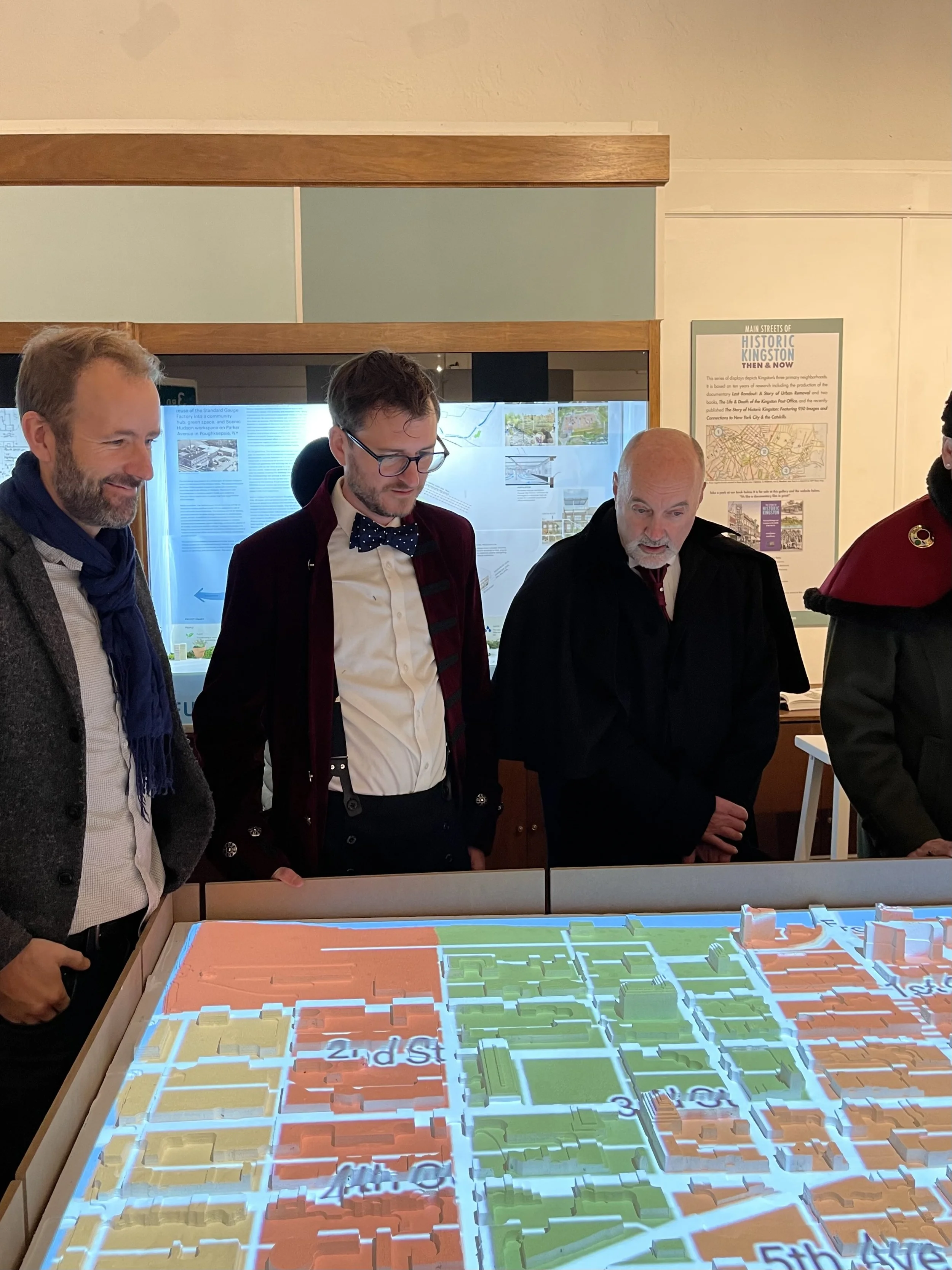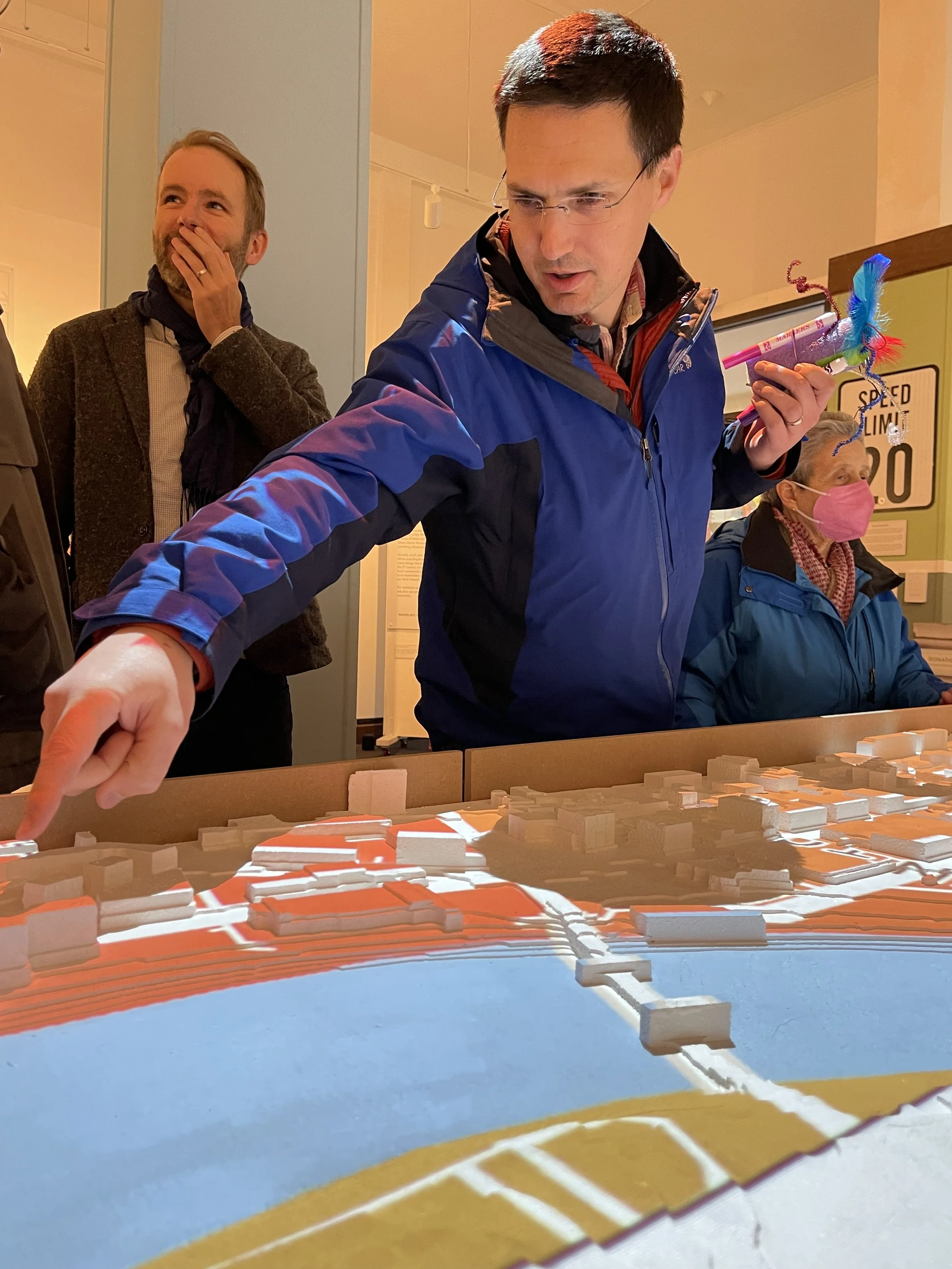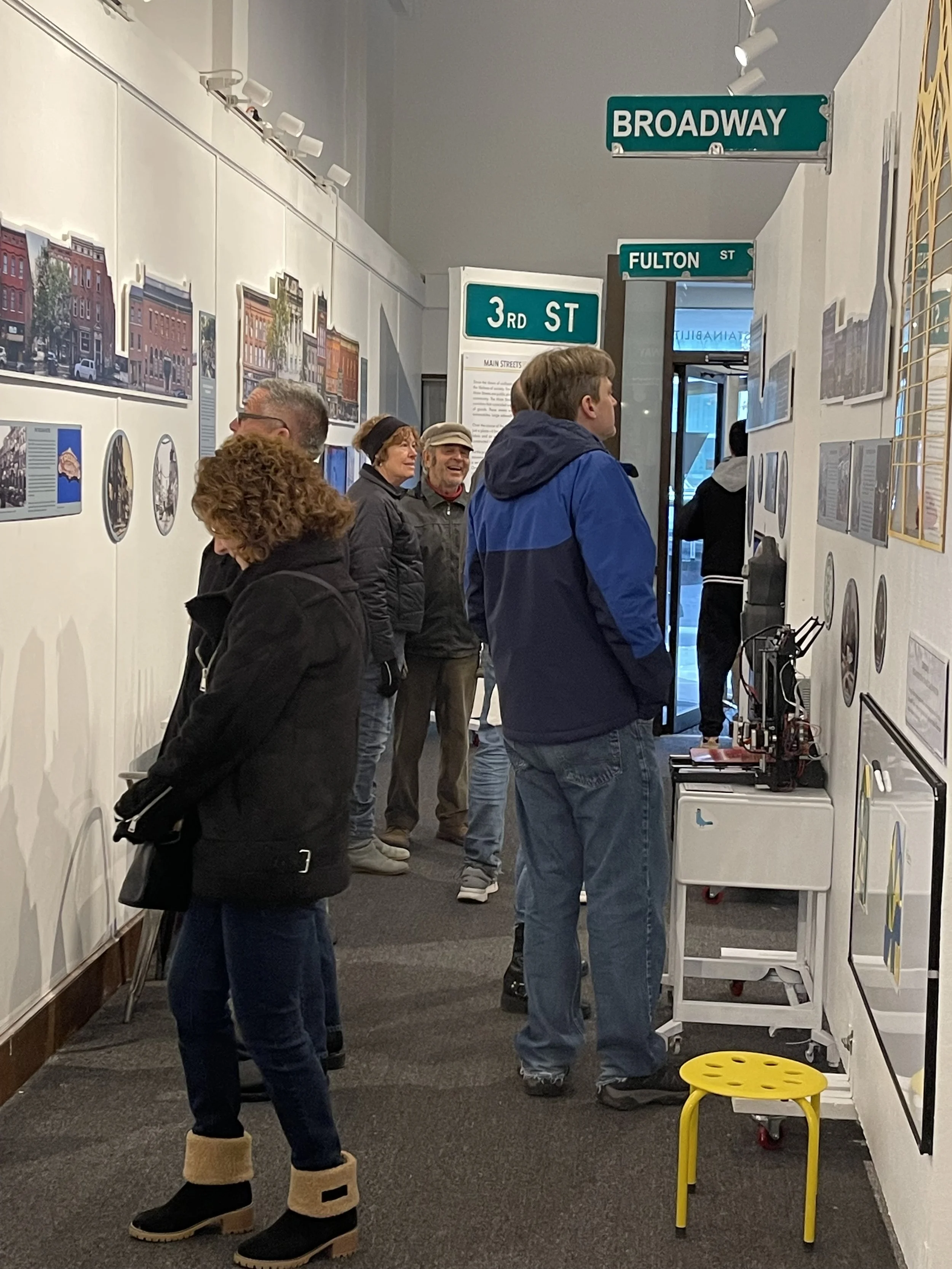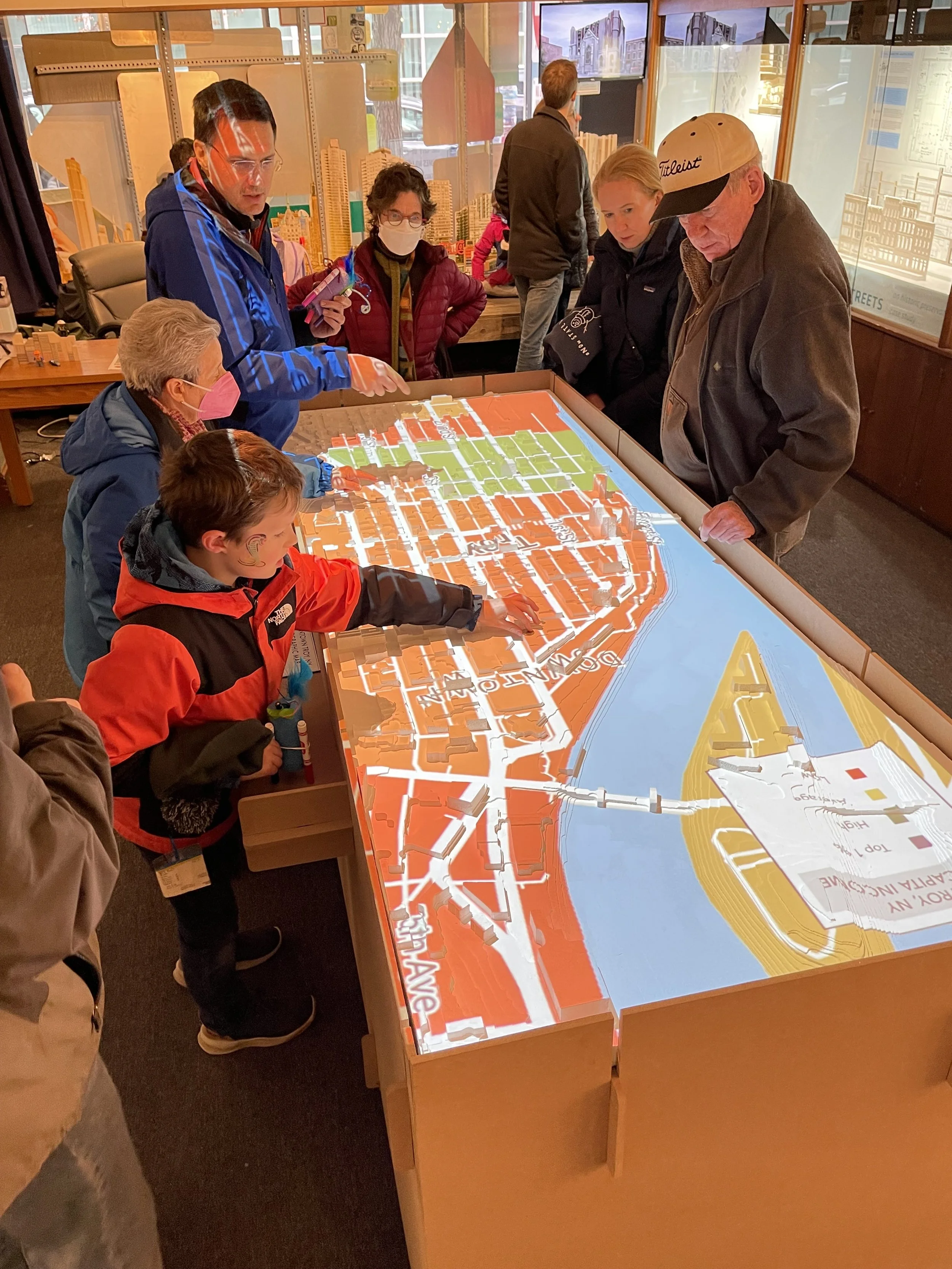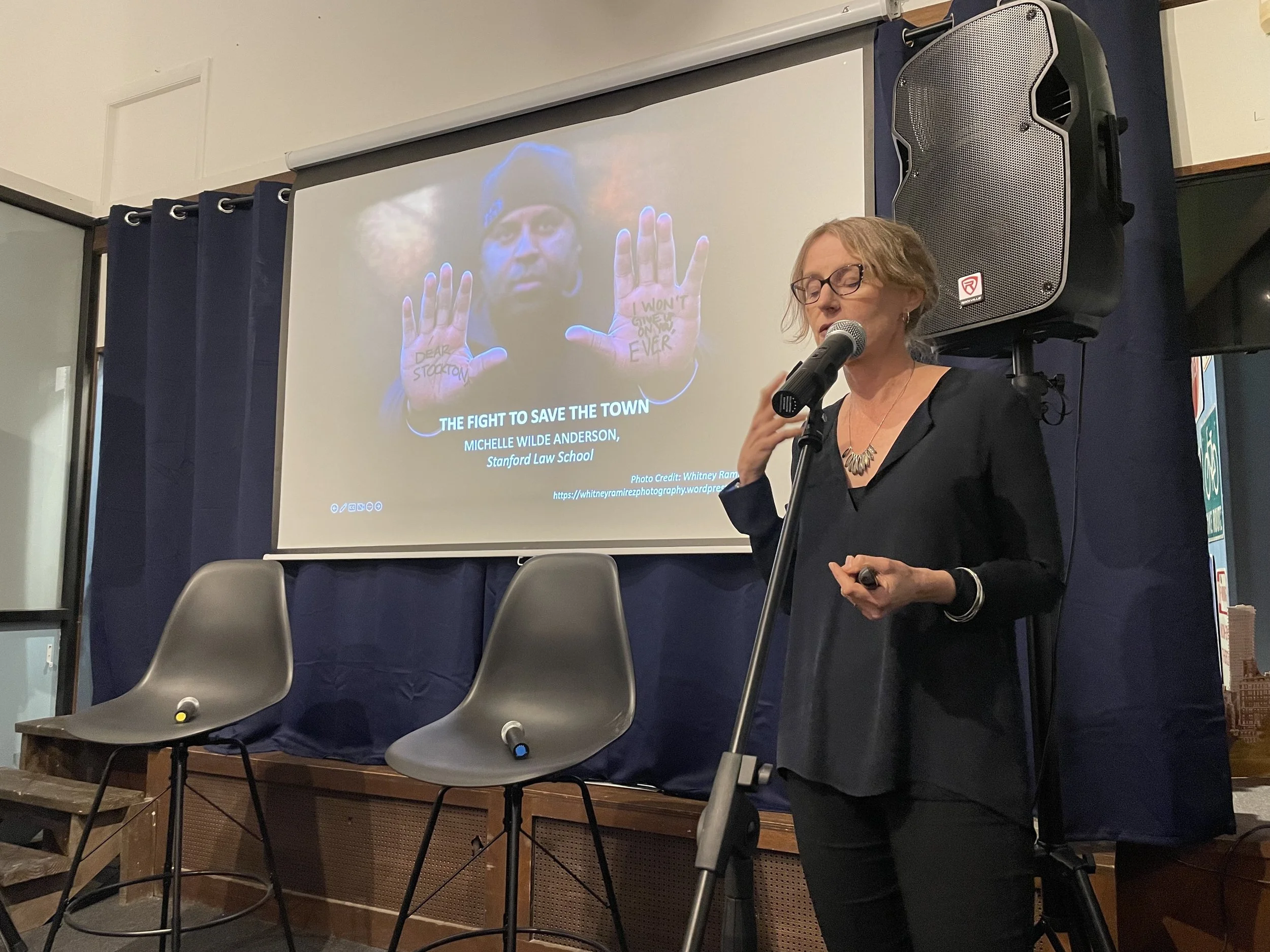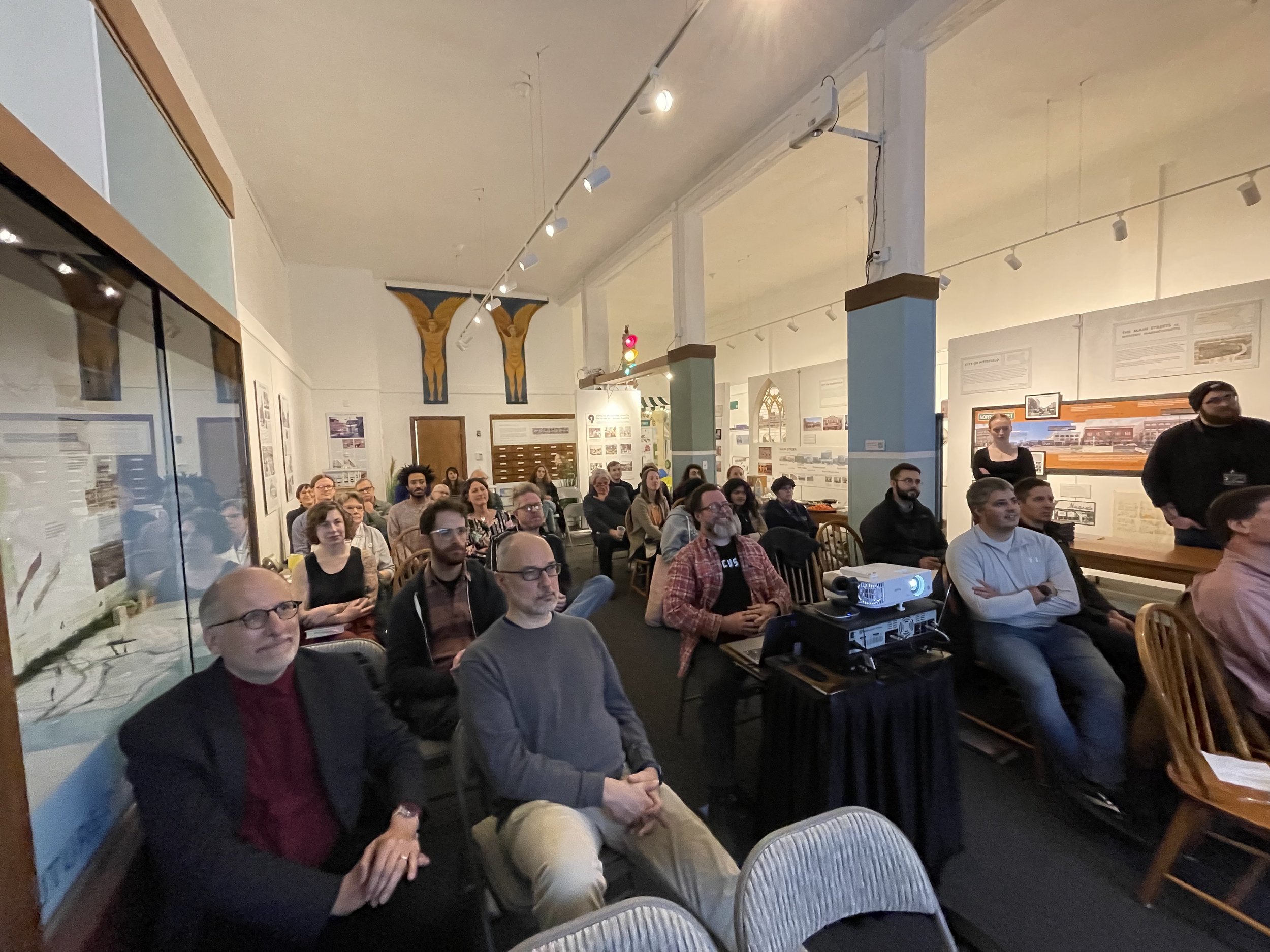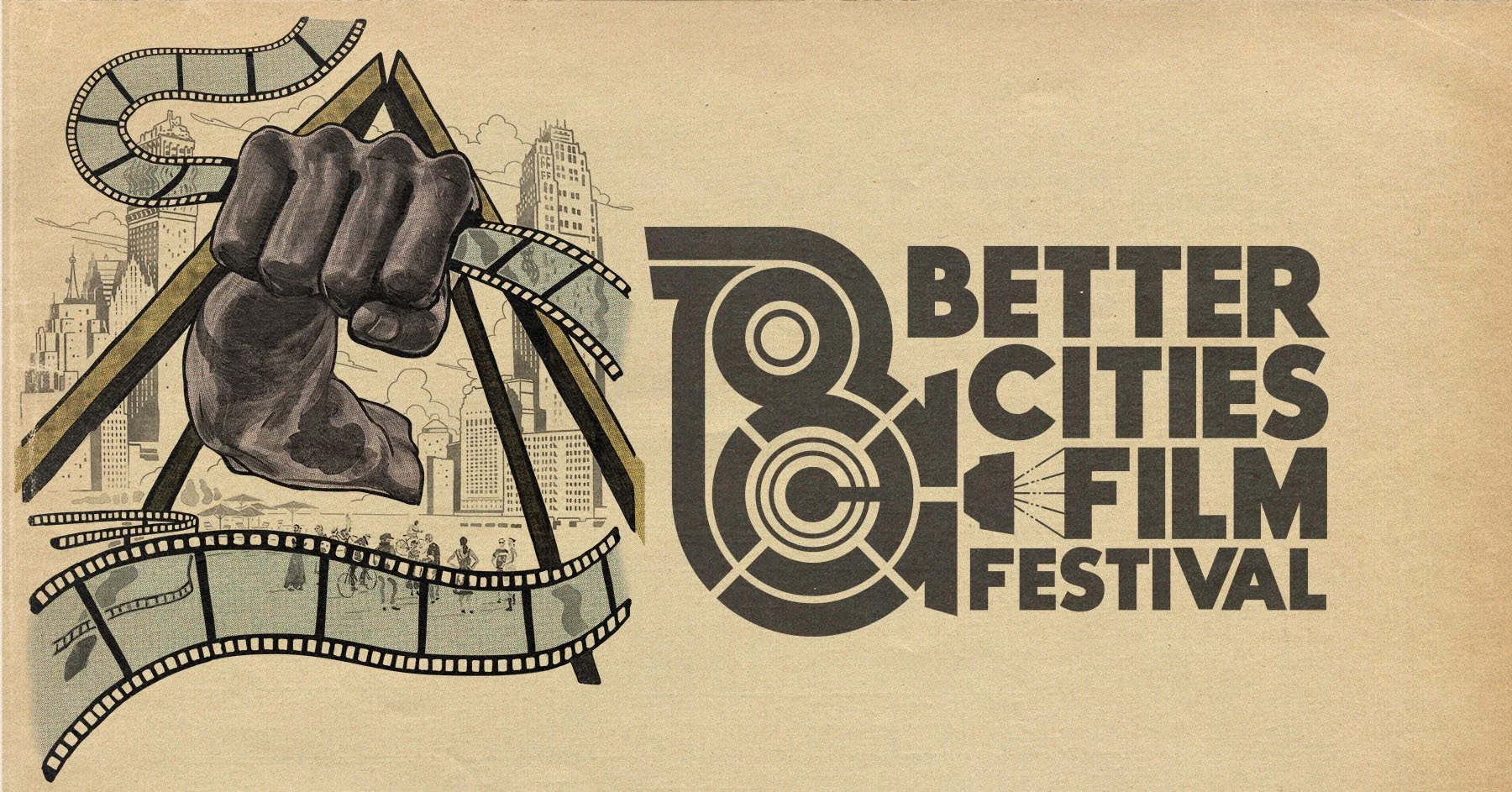2022 Year in Review
The Future of Small Cities Institute had an amazing year! We opened the FOCUS Lab, our brick & mortar exhibition space and urban room and hosted our first in-person events.
JANUARY/FEBRUARY
In the depths of winter we began constructing the FOCUS Lab. The space was previously a jewelry shop (vacant for 6 years) in a former Masonic Temple and required some serious work to raise the ceiling and install lights.
MARCH
We hosted our second annual Winter Dialogue “The Challenge & Opportunity of Greening America’s Small Cities” between Dr. Catherine Tumber, author of Small, Gritty, and Green,, and Dr. Luis Aguirre-Torres, Sustainability Coordinator for the City of Ithaca, part of a larger series about sustainability and equity in smaller legacy cities co-hosted by Lincoln Institute for Land Policy.
Dr. Tumber kicked off our conversation with a brief history of the literature on small legacy cities, including Gritty Cities and her own seminal work, Small, Gritty, and Green which examined the particular infrastructure and ecological footprints of these cities and made an argument that much of their resources were primed for the growth of a green economy as a redevelopment and regeneration strategy. Dr. Tumber's more recent work has been for the Lincoln Institute for Land Policy's Legacy Cities Initiative. Her team's first working paper was called "Greenventory 2.0: Sustainability Lessons from Small and Midsize Legacy Cities."
Dr. Aguirre-Torres has created an extraordinary funding model to decarbonize 4,000 buildings in Ithaca as part of that city’s Green New Deal. Dr. Torres laid out how Ithaca's overall approach to carbon neutrality was through four avenues: 1) energy efficiency, 2) decarbonization, 3) electrification, 4) carbon capture and sequestration. The challenge for hitting targets in all of these areas becomes further complicated when viewed through the lens of equity and justice. Dr. Aguirre-Torres reviewed the city’s innovative green workforce model, its stress on cooperation across the region, and the variety of novel funding solutions he has fashioned to pay for the project.
You can read a recap of the event here and watch a video of the event here.
APRIL
In April we hosted the grand opening of the FOCUS (Future of Cities and Urban Sustainability) Lab, a new exhibition space and urban room that explores sustainable and inclusive community design solutions. Through a rotating series of exhibitions, the Lab seeks to engage citizens of all ages into co-creating what the future of their city should look like.
Over 150 people showed up in Downtown Troy to see the new space and view the inaugural exhibit "To Flow Both Ways: The Past, Present, and Future of Hudson Waterfronts." The exhibit explores the ecological features of the tidal estuary, its indigenous history, the industrial era, and future sustainable and resiliency projects along its shorelines. The exhibit was largely designed by RPI students in the School of Architecture, taught by Professor Michael Oatman.
Mayor Patrick Madden helped us ring in the new space, calling it "an exciting and important addition to the city and the region." We're grateful for the ongoing support from the City of Troy and look forward to functioning as a kind of living room for the city where we can workshop ideas and explore future design solutions.
Representatives from The Children's Museum at Saratoga were also in attendance as the Lab is partnering with the Museum to bring school programing and children's events to Troy. The Hudson Waterfront exhibit has many interactive elements for kids, as was evident by the young crew running around at the opening!
–––
In April we also presented the next event in our series on sustainability and equity in smaller legacy cities with the Lincoln Institute of Land Policy, “Greening on the Ground: Community-Driven Strategies for Achieving Climate Resilience and Equity.” This webinar looked at Groundwork USA’s Climate Safe Neighborhoods Partnership, which offers smaller legacy cities an effective model for greening neighborhoods, rendering them more equitable and climate resilient. We heard about Groundwork’s community-driven greening strategies in Elizabeth, New Jersey; Pawtucket, Rhode Island; and Cincinnati, Ohio, among others, where they are helping to catalyze systemic change, strengthen civic infrastructure, and advance equitable neighborhood regeneration in these capacity-challenged communities.
You can watch the event video here.
MAY
As the weather warmed we hosted our first school visit, from the Susan Odell Taylor School. Students learned about the Hudson River estuary, climate change, sea level rise, and shoreline resilience. They designed their own waterfront developments and thought about the environmental impacts of their designs! More visits throughout the year would follow!
JUNE
In our first live event at the FOCUS Lab, “Hudson River Resilience: Designing Our Future Waterfronts,” we heard from a range of thinkers and practitioners who are facing the question of resilient waterfronts head on.
Libby Zemaitis, Climate Change Program coordinator at the NYS DEC Hudson River Estuary Program, gave an overview of some of the climate adaptive projects along the Hudson. Russell Lange, former Executive Director of the Hudson River Maritime Museum, talked about life along a rising shoreline in Kingston and some of the adaptive strategies they’ve implemented. Professor Josh Cerra, principal investigator for the Climate-adaptive Design Program at Cornell University, introduced CaD’s unique format of pairing student researchers and designers with waterfront communities. We then zeroed into the case study of Hudson, NY, as we heard from Lyndsey Cooper, Climate Outreach Specialist at DEC’s Hudson River Estuary Program, who discussed some of the Phase II estuary work being done around Hudson’s waterfront.
Here is a recap of the event and a link to video of the event.
JULY
We presented the third and final event in our series on sustainability and equity in smaller legacy cities with the Lincoln Institute of Land Policy, titled “Building Trust and Taking Action: Local Climate Justice Initiatives in Legacy Cities.”
In this webinar, Leah Bamberger, executive director of the Northeastern University Climate Justice and Sustainability Hub and former director of sustainability for the city of Providence, shared lessons learned in Providence, as well as context for current environmental justice efforts at the local government level. City of Providence Sustainability Director Emily Koo and Sustainability Policy Associate Elder Gonzalez Trejo talked about the city’s Racial and Environmental Justice Committee and its Climate Justice Plan, the link between planning and public health, and how municipal actors can promote climate justice through stronger community engagement.
You can watch a video of the event here.
JULY/AUGUST
We began preparations for our next exhibition on Main Streets by working with a summer ARCH seminar at RPI. Students performed downtown derivés, met public figures along the 3rd St corridor, visited archives, conducted interviews, redesigned storefronts and created interactive stations for young people. At the end of the summer we hosted a mini-exhibition in the School of Architecture that would act as a test run for the future exhibition in the FOCUS Lab.
SEPTEMBER
Fall was a busy time at the Lab. We kicked things off with “This River is a Place: Activating a City's Waterfront,” in which we explored three Hudson Riverfront cities and heard about their journeys to activate their waterfronts, how they formed public and private partnerships, what has worked and what has not worked, and what steps cities just starting on the process should take.
Jeff Anzevino, Director of Land Use Advocacy at Scenic Hudson, talked about overall waterfront activation strategies as outlined in the Revitalizing Hudson Waterfronts Plan, and then explore the case study of Beacon's waterfront, where he was deeply involved in the development of Long Dock Park. From Hudson, Adam Weinert, founder of the Hudson Arts Coalition, told us about the organization of Waterfront Wednesdays, a hugely successful weekly community festival along Hudson’s waterfront. And from Kingston, NY, Julie Noble, Sustainability Coordinator for the City of Kingston, narrated her role in the city’s Weaving the Waterfront project and how they are developing Kingston Point Park into both a place of climate resilience and a community nexus.
Event video here.
–––
In September we also embarked on an ambitious three-part live series co-hosted with Climate Now on creating equitable pathways to the Net Zero City, using Ithaca as our case study.
Our first event “How Do We Achieve Sustainable Prosperity?” took place at The Soil Factory in Ithaca and discussed what skills are needed to retrofit all of Ithaca’s buildings and critical elements of climate justice. Dr. Luis Aguirre-Torres & Rebecca Evans from the City of Ithaca, Dr. Neha Khanna, Binghampton University and Cornell University, and Dr. Aigbokhan Aloja Airewele, Green Energy Workforce Training Center. The event was moderated by James Lawler of Climate Now.
Event video here.
OCTOBER
We began the month with a screening of Jon Bowermaster’s film WindShipped, a documentary that follows the low-carbon sail freight Schooner Apollonia. Since Spring 2020, the 65-foot Schooner Apollonia has been sailing the Hudson River delivering goods from Hudson to New York City, with 15 ports-of-call along its route. As Captain Sam Merrett says in the film, “this is not a gimmick.” He and his team look forward to a day when they are one of many sail freight boats operating on the Hudson, powered by the wind and sun.
After the screening, we heard from Jon Bowermaster, Captain Sam Merrett, Steven Woods of the Hudson River Maritime Museum, and Tianna Kennedy of the Catskill Agrarian Alliance.
———
Part 2 of our series Net-Zero Cities, co-hosted by Climate Now, took place at the FOCUS Lab. The event was titled “How Do We Make the Electric City of the Future?” and took a deep dive into the the technologies needed to electrify an entire city’s built environment without leaving low-income populations behind during the transition. We heard from Sue Dougherty of NYSERDA, Cullen Kasunic of BlocPower, Joanne Coons of Hudson Valley Community College, and Dr. Luis Aguirre-Torres of the City of Ithaca.
Event Video here.
–––
At the end of the month, we closed our exhibition on Hudson Riverfronts with an interactive shoreline performance by FOCUS Lab artist-in-residence Jack Magai entitled “The New Island Project.” Participants were asked to navigate the liminal spaces beneath the Hoosick St bridge. Jack assigned everyone roles—explorer, industrialist, miner, critic—and chaos and beauty ensued.
NOVEMBER
The last event in our series Net-Zero Cities, co-hosted by Climate Now, took place in New Haven at the Yale Center for Business and the Environment. Entitled How Do We Finance The Net-Zero City?, we explored the kinds of funding sources available to support a city’s clean energy transition and financing a path to net-zero. Panelists included Joe Evans of the Kresge Foundation, Dr. Rob Klee of Yale University, Bryan Garcia of Connecticut Green Bank, and Dr. Luis Aguirre-Torres of the City of Ithaca.
Event Video here.
DECEMBER
On December 4, as part of Troy’s Victorian Stroll, we launched the grand opening of the FOCUS Lab’s new exhibition “Main Streets Resurfaced,” about the past and future of our downtown corridors. Over 300 people strolled in over the course of the afternoon, including Mayor Madden and other dignitaries! The Victorian Stroll is a great example of downtown programming that creates an amazing amount of foot traffic, culture, and commerce, and so the occasion was a highly appropriate launch date for the exhibit.
The “Main Streets Resurfaced” exhibition was made possible by support from Pioneer, Rosenblum Development, RPI School of Architecture, McCarthy Charities, and the Howard & Bush Foundation.
–––
We finished the year with a terrific event with Michelle Wilde Anderson, author of The Fight to Save the Town: Reimagining Discarded America. Michelle talked about some of the places covered in the book, including Stockton, CA and Lawrence, MA. We then covered a wide range of topics in our conversation, including the challenge of organized labor in the age of gig workers, healing intergenerational violence, the limits of top down change and importance of grassroots organization, and the role of neighborhood organizations like Lawrence Community Works.
You can watch a video of the event here.
2023 + BEYOND
We have lots in store for 2023. In January we’re finishing our classroom, where we will host more school groups, and the Climate Change Action Partnership, a group of regional climate educators helmed by the Children’s Museum. We’re also hosting the Capital Region Better Cities Film Festival at the end of January. In February we’re putting on our 3rd Annual Winter Dialogue with the brilliant David Dixon. Stay tuned for more details!
If you’d like to rent out our space for your own event, you can!
Here’s to another great year ahead!

